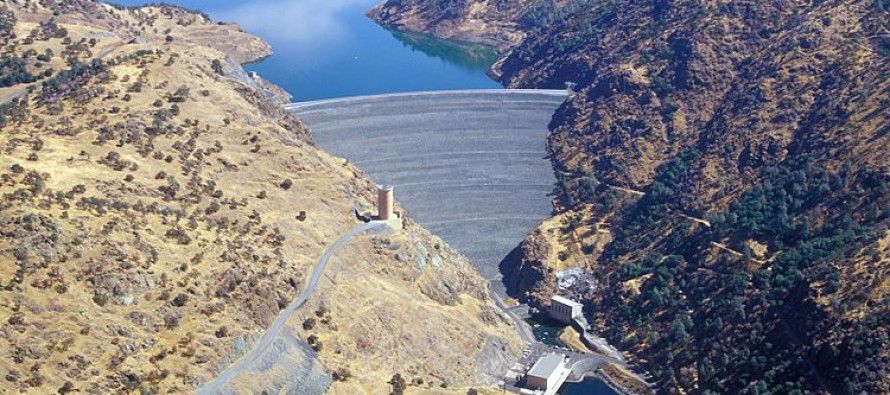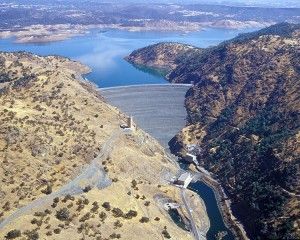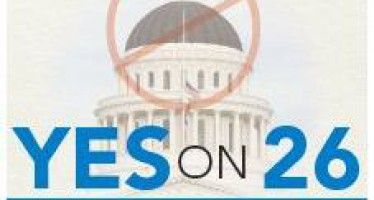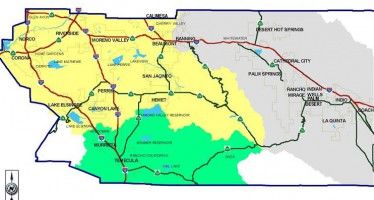Assemblyman Rendon’s bill addresses CA drought

As the record drought intensifies, the California Legislature is working on several proposals to address the state’s lack of water storage and inadequate delivery system.
A major entry comes from Assemblyman Anthony Rendon, D-Lakewood. Assembly Bill 1331 would place a $6.5 billion bond on the Nov. 2014 ballot.
It would replace the $11.1 billion California Water Bond currently on the ballot, but which has been postponed from the 2010 and 2012 ballots because of concerns voters would reject it because of the high cost. Rendon’s bond would be more modest and targeted at specific current needs.
“Both houses of the Legislature have engaged in substantial efforts to reanalyze and right-size a bond so that voters can be confident that it addresses California’s most pressing water infrastructure and program needs and is accountable,” a water committee background paper explained of AB1331.
In a CalWatchdog.com interview, Rendon explained that his bill includes:
- “$1 billion for maintaining and improving drinking water quality;
- “$1.5 billion for protecting rivers and watersheds;
- “$1.5 billion to fund integrated regional water management that will improve water delivery and help regions reduce the impact of climate change on water supply;
- “$1 billion to protecting the California Delta that is critical to the state water supply system and a key ecological resource;
- “$1.5 billion for water storage projects that will also reduce the impact of climate change on clean, reliable and affordable water supply.”
Rendon said the PPIC polling data showed a bond of $7 billion or less could pass, so the Assembly Water, Parks and Wildlife Committee worked to formulate AB1331.
Dirty water politics
As surprising as it is, there are locations in California which have dirty drinking water. Rendon said in his district the city of Maywood has had historical problems with dirty water.
Last year, Gov. Jerry Brown signed a bill authored by Rendon, AB240, which requires three mutual water companies in tiny Maywood to comply with open-meeting and open-record rules that apply to public agencies. The bill also said the Legislature’s intent was “to create a public agency that can consolidate drinking water services” in Maywood, according to the Los Angeles Times.
There are other problems. The Times reported, “[T]he Central Basin Municipal Water District, has been raided twice in recent months by the FBI as part of a corruption investigation that involves state Sen. Ronald Calderon (D-Montbello).”
Maywood recently has been a hotbed of water politics. Located in southeast Los Angeles County, residents have long complained about yellow and brown tap water smelling like rotten eggs. Rendon’s AB240 is intended to rid the city of dirty water — and dirty water politics.
The Central Basin Municipal Water District has jurisdiction in Maywood. Residents worry the Central basin agency is angling for more influence there, according to KPCC Public Radio. “A former Central Basin employee, Gil Cedillo Jr., ran for the board of Maywood Mutual Water Company No. 3 last year,” KPCC reported.
Watershed
Rendon said the water bond funding from his AB1331 also would go to protecting and restoring watersheds and aquatic ecosystems, including the Sacramento-San Joaquin Delta. He said the state’s watersheds provide regional and statewide benefits for cities, farms, manufacturing and wildlife. Benefits would include protecting water quality and sustainability, improving flood control and providing habitat for wildlife and recreation for citizens.
Rendon stressed that none of the bond money would go toward the governor’s Delta Water Tunnel project.
Storage
One of the biggest concerns in the state is water storage.
Rendon said his bill would fund above and below ground water storage, with a focus on regional self-reliance.
“The County of Los Angeles has talked about storm water runoff and other things we should look towards in terms of regional self-reliance,” Rendon said. “We need to look at how we manage water in our own backyard.”
Cities and municipalities will be able to bid on separate projects to receive funding from the water bond, if passed by the voters.
Rendon said in a June hearing of the water committee:
“We need to maintain that focus and continue to ask fundamental questions like how do we use and reuse water in our regions? How do we manage the watersheds where we live? How do we manage our storm water supply? How do we manage our groundwater aquifers for storage and supply? These are the questions that we will need to answer in the years ahead, and consistent with the 2009 statute we need to invest in that future in greater self reliance.”
The Assembly Water, Parks and Wildlife Committee has already held five hearings on AB1331: One each in Redding and Seaside and three in Sacramento. Upcoming hearings will be held in Hanford, Eureka, Fresno, the San Gabriel Valley and Stockton.
“This is not an era to build large conveyance projects through a bond,” Rendon said. “Rather than a large bond directed by the state, these will be local decisions.”
Status
The latest revision of AB1331 does not yet have a legislative analysis. So far, there is no opposition. But it will compete with other bills, some of which were reported on earlier by CalWatchdog.com. Our site will continue to cover the bonds as the debate over them, and the drought, continues.
Related Articles
Prop. 26 shows teeth, kills San Diego hotel tax hike
One of the few recent big triumphs of the small-government, low-tax movement in California came in 2010, when state voters
Californians slash water use by 27.3 percent in June
Motivated by a fourth year of drought — and mandatory water cuts — Californians reduced urban water use by 27.3 percent in June,
Sen. Boxer: Conservation would solve drought
Can California’s zero-sum water wars only be resolved by a system of stern water conservation? That’s what California U.S.





